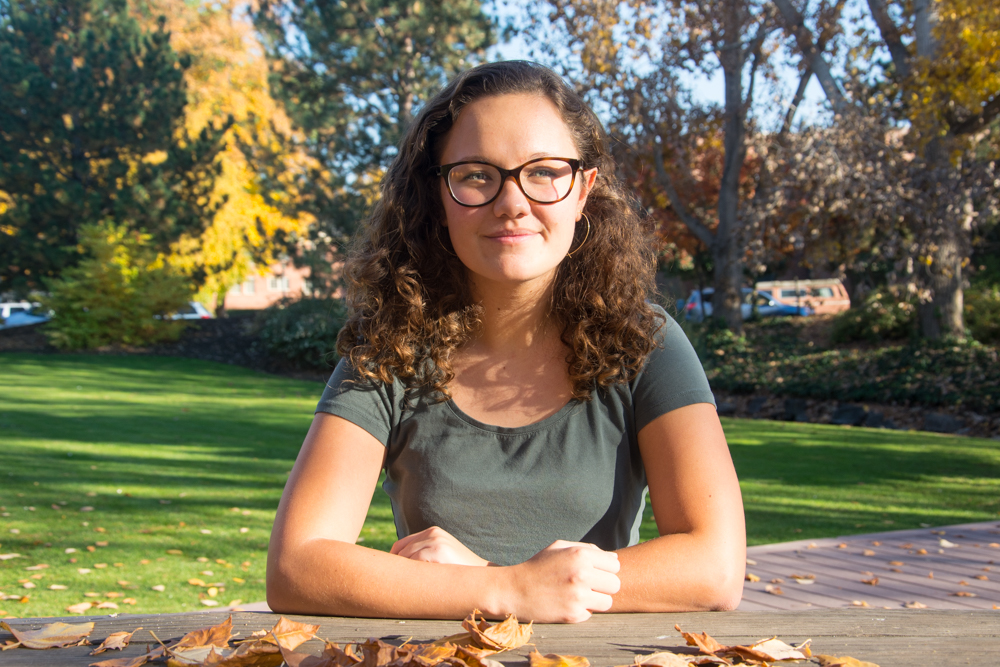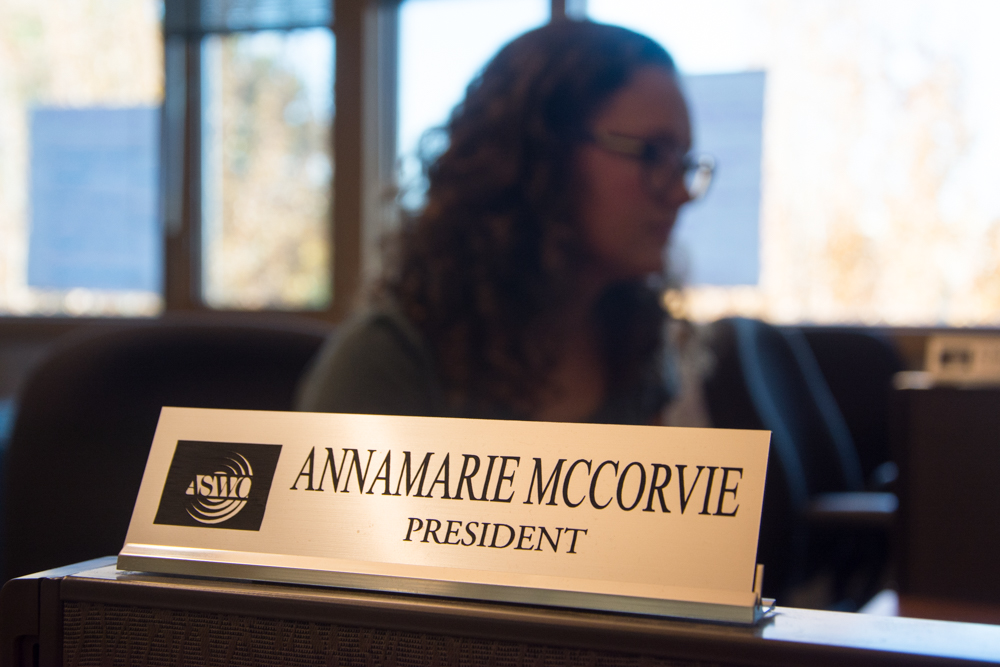ASWC President on Campus Free Speech
October 30, 2017
On October 27, Wire Reporter Erin Lopez sat down with ASWC’s President AnnaMarie McCorvie ‘18 to discuss free speech on campus. What follows is a partial transcript from that conversation. Head to https://whitmanwire.com/ to listen to the full interview. The following transcript has been edited for clarity and concision.

The Wire: Can you describe last week’s ASWC Town Hall on Free Speech?
McCorvie: One thing I saw at the town hall was that a lot of students really agreed. There was quite a bit of agreement between students that safety should be weighed as an important factor. There was a lot of agreement between students that there are some people who come to speak to college campuses with the intent of creating harm, and if there intent is to create harm, then what does bringing them do for us? We are not actually going to have a discussion about the issue. If they are just going to come and out a student for being undocumented or something like that, then there is no reason to bring them.
The Wire: Where do you stand on [this issue of safety as it relates to Free Speech]?
McCorvie: On a private college campus, we do not have to bring someone whose intent is to create harm, who isn’t intellectually responsible, who doesn’t use facts to back up their argument. I think that it’s a little easy to assume that on Whitman’s campus we aren’t already having difficult conversations. I’ll hear from students sometimes, ‘Oh, I feel like I never debate with anyone. I feel like I never have the chance to argue because we have such a liberal consensus.’ But that is not what I have found. I have productive disagreements all the time: in my politics classes, in my economics classes. I actually do think that there is a wide spectrum of beliefs on our campus. If you aren’t engaging with them, I think that might be about who you’re friends with and what classes you’re taking.
The Wire: What is the “harm” that we are protecting students from that these speakers could bring to campus?
McCorvie: I think we have seen some examples on college campuses, like UC Berkeley, of the harm actually being physical harm [to students]. To take a really extreme example, we can talk about the deaths that occurred at Charlottesville–that is physical harm, people actually losing their lives. I also think it’s fair to say outing a student for being undocumented, outing a student for being transgender–these kinds of harm are also really important.

The Wire: How do you see this conversation playing out in the “four pillars” that President Murray has identified? What do you see as the role of student government in protecting or policing free speech? [The four pillars here refer to President Murray’s points that Whitman supports: 1. More speech not less speech 2. Silencing others is antithetical to free speech 3. Speech should be intellectually responsible and based in fact 4. We should engage in dialogue not monologue.]
McCorvie: Addressing the four pillars question first: I think Kathy’s four pillars are optimistic, and hopeful, and assume good intent from people. I love that and I love to assume good intent in people. When I get into political arguments and I disagree with people, [I] can still assume good intent. It is only this tiny fringe, opinions advocating dehumanization, that is [spoken without] good intent. So, I think her pillars are great assuming good intention. [But] when you have someone who is trying to create chaos or mayhem, the four pillars stop meaning much because as [has been pointed out], eugenics and biological racism for a long time were grounded in fact and were intellectually responsible. Someone could still absolutely cite those scientific sources to say there is one race of people that is better than another, and I would have to assume there is some mal-intent there, some anger, some inferiority complex, or some insecurity, and the four pillars kind of fall apart when people are no longer inherently good. But I do think people are inherently good. [Addressing the second question,] I think ASWC’s number one way that we support free speech is with our relationship with The Wire; we cannot and would never, because we are bound not to in our bylaws, dictate what The Wire can and can’t say.




